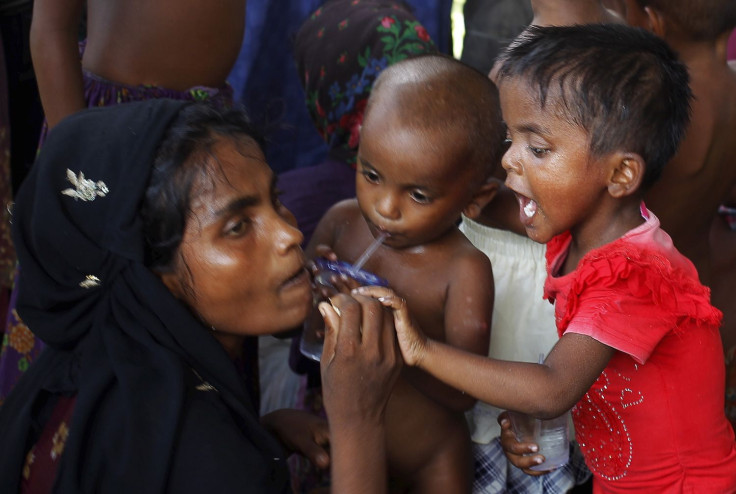Indonesia And Malaysia Agree To Offer Migrants Temporary Shelter; Thailand Undecided

Malaysia and Indonesia have decided not to shoo away migrant boats, keeping up with the international pressure by offering shelter to the asylum seekers provided resettling is done within a year's time. Both the countries have said they will offer shelter to 7,000 refugees and migrants who are lost at sea in toppling boats, however made it clear that the assistance will be provided for the time being and is the final one.
Over 3,000 people have landed this month alone in Malaysia and Indonesia. Along with Thailand, the other two countries have pushed also away many boats that approached their soil despite the United Nations request to accommodate them. Thailand has not committed to providing any refuge so far.
Who Are These Refugees
The Rohingya are a part of Muslim minorities, who speak the ethnic Rohingya language, could be associated with Bengali -- an Indo-European language. They belong to northern Rakhine state (formerly known as Arakan), a coastal village in Burma's capital city, Myanmar.
Burma's minister of immigration and population informed there are around 1.33 million Rohingyas in Burma, but country does not consider all of them as citizens nor an ethnic group. So far, only about 40,000 have been offered Burmese citizenship.
What’s Happened To Them
Rohingya and Bangladeshi migrants are trying to get rid of persecution and poverty back home or were abducted by traffickers. They are now suffering from various diseases and starvation in the middle of the sea.
What’s Next
“What we have clearly stated is that we will take in only those people in the high sea,” the Malaysian foreign minister, Anifah Aman, said. “But under no circumstances would we be expected to take each one of them if there is an influx of others.”
Meanwhile, Thailand’s foreign minister who has also attended the meeting in Kuala Lumpur, said, his country will take a call on the issue during a regional conference in Bangkok next week.
“We maintain our stance that we are a transit country. In the meeting we said that our country has more problems than theirs,” the Thai prime minister, Prayuth Chan-ocha, said. “On whether we will accept or not accept more migrants you have to wait until 29 May when various organisations and countries will meet.”
To report problems or to leave feedback about this article, e-mail: barsha23@gmail.com.





















